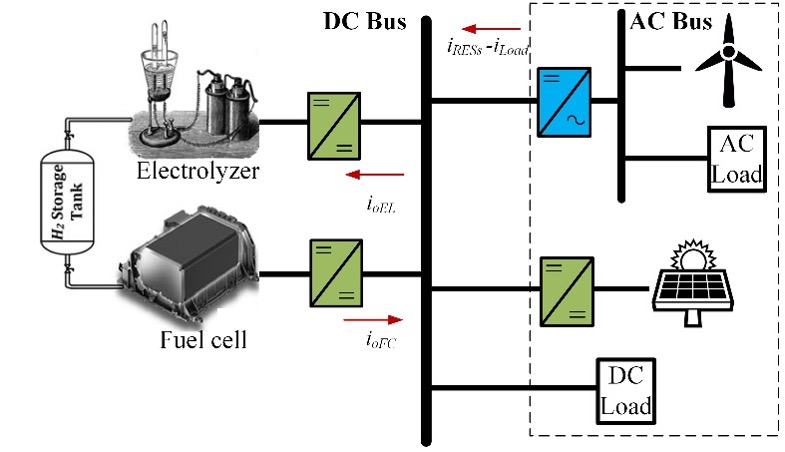Energy solution in sight for remote regions

New solution can achieve sustainable electricity supply both in remote regions and cities. A self-sustaining sustainable solution for energy in Arctic Communities has been devised by Qianwen Xu, Assistant Professor of Electric Power Engineering. The solution is on IVAs 100-list 2023 and can improve sustainable electricity supply in remote regions.
Today, the energy supply in many Arctic communities depends on diesel generators which come with a significant impact on both the climate and local economies. Despite this, the Arctic has a large supply of renewable energy through both wind and sun, but solutions on how to utilize renewable energy for consistent electricity supply have so far been insufficient.

Qiawen Xu's research shows that it is possible to store energy over time by using hydrogen as an important component of the storage. It takes place in so-called microgrids, which are a small cooperative energy system where you can make use of both wind and solar power.
Self-sufficient
The microgrids can basically be set up anywhere, offering a self-sufficient and sustainable energy solution. The collaborative energy system is controlled, among other things, through real-time coordination for consistent electricity supply under changing weather conditions and a modular hardware solution that can be deployed in any place with a plug-and-play feature.
”The designed renewable energy-hydrogen microgrid solution can be directly deployed in different Artic communities to achieve fast deployment and sustainable electricity supply. It can make full use of wind and solar power, and extra hydrogen can be exported for use in industry and transportation, which makes it a very promising solution for self-sufficient energy systems in the Arctic regions”, she says.

Beyond remote regions, the solution may also promote the sustainable transitions of buildings in cities. This can have a major effect on many people's everyday lives and their access to energy. Anoteher project from Qiawen Xu is currently underway in Stockholm regarding the implementation of microgrids for smart buildings in the city.
Implementation in the near future
T he solution is on IVAs 100-list 2023 and last year, Qiawen Xu was awarded first place in the Nordic Energy Challenge for the solution. Going forward, all that remains is to implement the system, which is between one and two years in the future.
”It is, of course, incredibly honouring to have received this prestigious award. I have received a good response and many people who are interested in building this solution in Greenland, among other places”.
Read more:
A Novel Composite Nonlinear Controller for Stabilization of Constant Power Load in DC Microgrid
A Distributed and Robust Energy Management System for Networked Hybrid AC/DC Microgrids
Emelie Smedslund
Related news

Total climate impact of properties in focus in new study
The building stock has a significant long-term climate impact. Researchers at KTH Royal Institute of Technology have observed this when investigating the climate impact of recently constructed residen...
Read the article
Energy solution in sight for remote regions
New solution can achieve sustainable electricity supply both in remote regions and cities. A self-sustaining sustainable solution for energy in Arctic Communities has been devised by Qianwen Xu, Assis...
Read the article